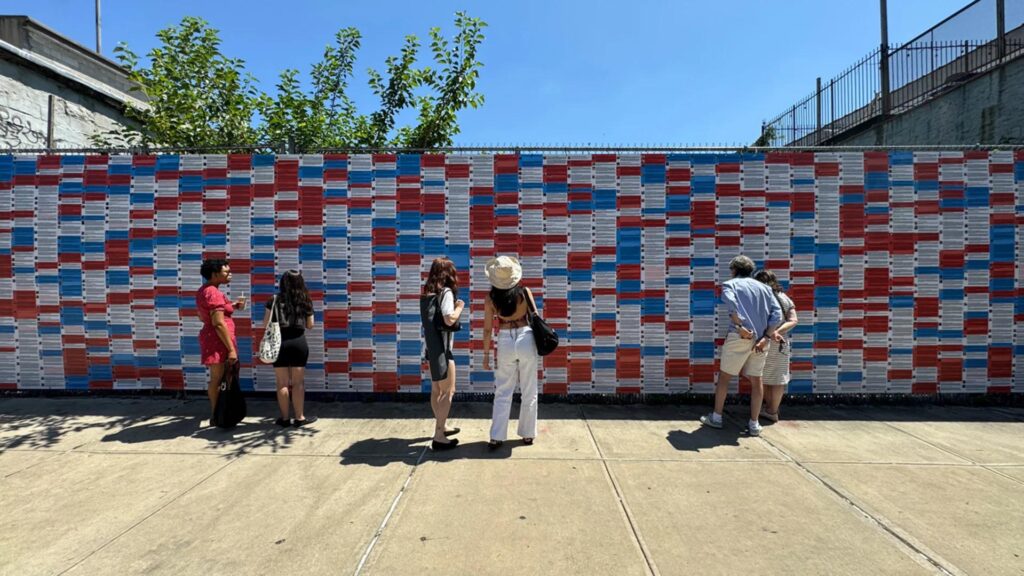NYC Education Leaders Unite to Challenge Federal Budget Reductions
On Thursday, prominent New York City officials and education advocates assembled at the iconic Tweed Courthouse to express their firm resistance against proposed federal budget cuts targeting public school funding. City council members, state representatives, and union leaders voiced their concerns over the Trump administration’s “Big Beautiful Bill,” warning that these financial reductions could severely weaken vital educational programs, deepen existing disparities, and threaten essential services that support tens of thousands of students across the city’s five boroughs.
The gathering emphasized the risks posed to special education, arts education, and after-school programs. Advocates cautioned that the federal budget plan would compel school districts like NYC to make difficult decisions, including potential teacher layoffs and larger class sizes. Their primary demands included:
- Maintaining federal education funding at or above current levels
- Safeguarding programs for students with disabilities and other vulnerable groups
- Increasing investments in after-school and enrichment activities to bridge opportunity gaps
- Ensuring transparency and community engagement in budgetary decisions
| Area Affected | Projected Reduction | Likely Outcome |
|---|---|---|
| Special Education | $150 million | Decreased support for students with disabilities |
| After-School Programs | $45 million | Shutdown of community learning centers |
| Arts and Music | $30 million | Elimination of enrichment classes in numerous schools |
| Teacher Training | $20 million | Reduced professional development opportunities |
Consequences of Federal Funding Cuts on NYC Schools and Student Support Services
The sudden reduction in federal funding has delivered a substantial setback to New York City’s public education system, endangering critical services that assist the city’s most vulnerable students. Educators and school administrators have raised alarms about the immediate threats to programs supporting students with disabilities, mental health counseling, and after-school activities. These funding losses disrupt ongoing initiatives and jeopardize the safety net for thousands of children, especially in neighborhoods already facing resource shortages. Experts warn that these cuts will disproportionately affect low-income families and students of color, further widening educational inequities.
A closer look at the most impacted services reveals:
- Special education: Limited access to tailored instruction and necessary equipment.
- Mental health support: Reductions in counseling staff and wellness programs.
- Extracurricular activities: Potential elimination of arts, sports, and after-school clubs.
- Nutrition programs: Threats to free and reduced-price meal services amid growing demand.
The table below outlines the anticipated funding gaps and their projected effects for the current fiscal year:
| Service Category | Estimated Funding Deficit | Projected Impact |
|---|---|---|
| Special Education | $45 million | Increased class sizes, fewer specialized staff |
| Mental Health Services | $30 million | Reduced counseling availability, program cuts |
| After-School Programs | $25 million | Closure of multiple community-based clubs |
| Nutrition Services | $15 million | Reduced meal provisions in select schools |
Advocacy for Reinstating Funding to Sustain Essential Education Services
At the historic Tweed Courthouse, community leaders, elected officials, and education advocates united to demand the reversal of funding cuts imposed by the Trump administration’s “Big Beautiful Bill.” They stressed that these financial reductions threaten the continuation of vital academic and support programs that have long served as lifelines for New York City’s public school students. Speakers highlighted that the cuts disproportionately impact services for students with disabilities, English language learners, and schools in historically underserved neighborhoods.
Key rally demands included:
- Reinstating funding for after-school tutoring and enrichment programs
- Boosting investments in student mental health services and counseling
- Protecting special education and inclusive classroom supports
- Renewing federal commitment to equitable resource distribution across NYC districts
| Program Focus | Effect of Budget Cuts | Advocate Recommendations |
|---|---|---|
| After-School Tutoring | Reduced hours and fewer locations | Restore funding to broaden access |
| Mental Health Support | Staff reductions and limited counseling | Increase funding to hire additional personnel |
| Special Education | Program cuts and fewer individualized resources | Ensure adherence to federal mandates |
| English Language Learner (ELL) Services | Reduction of language acquisition programs | Restore full budget to support diverse learners |
Policy Proposals Call for Bipartisan Efforts to Protect Urban Education Funding
Local policymakers and education advocates have issued a strong appeal for bipartisan collaboration to safeguard the financial foundations of urban public schools. They underscored the damaging effects of recent federal funding cuts, warning that such reductions threaten to reverse progress made in underserved communities. The coalition proposed several strategic actions aimed at creating a bipartisan framework to insulate education budgets from political volatility and ensure consistent support for New York City’s public schools.
- Creation of a federal stabilization fund dedicated to urban education to mitigate sudden budget cuts
- Enhanced transparency and accountability in the distribution of education funds across districts
- Implementation of annual impact assessments prior to any federal funding changes
- Strengthened cooperation among federal, state, and local governments to address educational disparities
| Policy Recommendation | Anticipated Benefit |
|---|---|
| Funding Stabilization Fund | Reduces the risk of abrupt financial disruptions |
| Transparency Initiatives | Improves fiscal responsibility and oversight |
| Annual Impact Reviews | Enables data-informed decision-making |
| Intergovernmental Collaboration | Ensures coordinated policy implementation |
Looking Ahead: The Future of NYC Public Education Funding
As discussions around federal education budgets grow more contentious, the recent assembly at Tweed Courthouse highlights the urgent concerns shared by New York City’s education leaders and advocates regarding the Trump administration’s “Big Beautiful Bill” funding cuts. With thousands of students and educators depending on sustained financial support, city officials and community stakeholders remain steadfast in urging Congress to reconsider and reinstate essential funding. The resolution of this issue will significantly influence the resources available to NYC’s public schools and the educational opportunities accessible to future generations.













